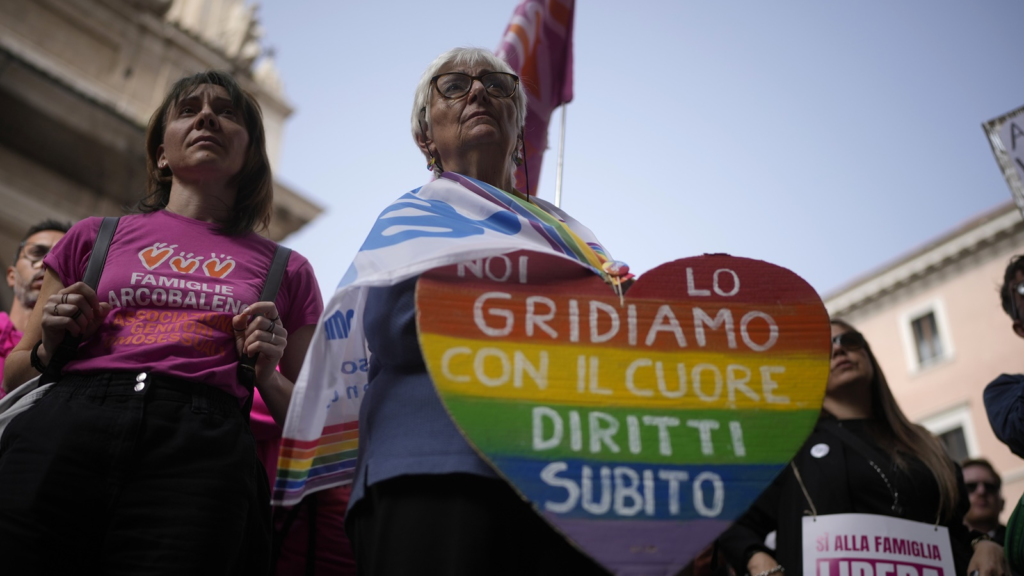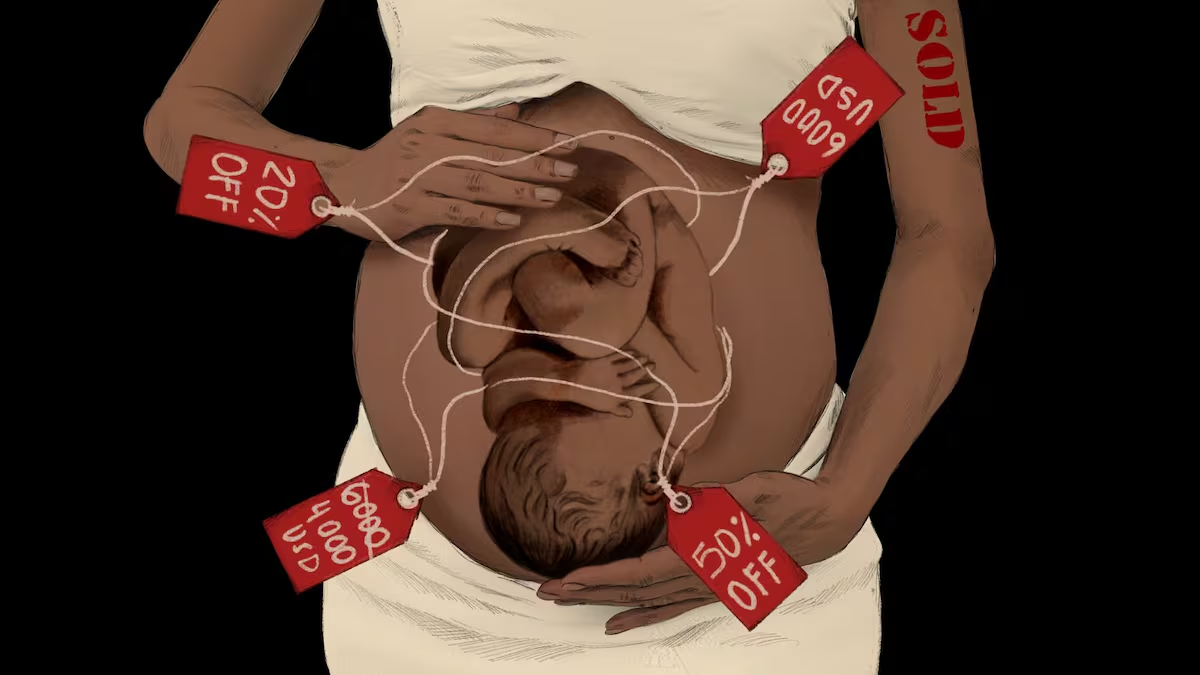In a controversial move, Italy has passed a stricter ban on surrogacy, criminalizing not only the practice within the country but also penalizing those who travel abroad to seek surrogacy services.
The new law, driven by Prime Minister Giorgia Meloni and her conservative government, targets anyone attempting to bypass the national ban by traveling to countries where surrogacy is legal, such as the United States or Canada. The penalties are severe, with violators facing up to two years in prison and fines reaching as high as €1 million ($1.1 million).
This legislation, which reflects Italy’s strong Catholic values, has provoked fierce debate, especially regarding its impact on LGBTQ+ couples and infertile individuals who rely on surrogacy to build families.
The New Law: A Harsher Stance on Surrogacy
Italy’s new legislation against surrogacy marks one of the strictest laws in Europe. While surrogacy has long been illegal in Italy, the recent amendments take the prohibition to a new level by extending the law beyond the country’s borders.
Previously, citizens could travel abroad to countries where surrogacy is legal without facing legal consequences upon their return to Italy. This is no longer the case, as the law now criminalizes seeking surrogacy services anywhere in the world.
The decision to escalate penalties comes in response to growing concerns within the conservative government about the moral and ethical implications of surrogacy. Meloni, a strong proponent of traditional family values, has argued that surrogacy undermines the dignity of women and commodifies children.
Read : Amalfi Coast of Italy: Where Sea Meets Sky to Share Captivating Tales of Sunlit Shores
Her government’s move aligns with the Catholic Church’s stance, which strongly opposes surrogacy on the grounds that it exploits women’s bodies and violates their inherent dignity. Pope Francis has spoken out against the practice, describing it as turning women into “mere means” to fulfill the desires of others.
Read : Giorgia Meloni: The First Woman Prime Minister of Italy and the Most Powerful Woman in the World
Under the new law, Italian citizens found guilty of engaging in surrogacy abroad will face imprisonment for up to two years, along with substantial fines. The penalties are designed to act as a strong deterrent, preventing citizens from circumventing the national ban by traveling to countries where surrogacy is legal and regulated.
This law has drawn international attention, as it is one of the few instances where a nation has extended its legal reach to regulate the actions of its citizens outside its borders.
Implications for LGBTQ+ and Infertile Couples
While the law applies to all citizens equally, it has a disproportionate impact on LGBTQ+ couples and individuals who are unable to have biological children on their own. Many LGBTQ+ couples rely on surrogacy as one of the few viable options for starting a family.
The law has been met with widespread criticism from LGBTQ+ advocacy groups, who argue that it infringes on personal freedoms and discriminates against same-sex couples.

Michela Calabrò, the head of the Transfeminist Women’s Network at Arcigay, Italy’s leading LGBTQ+ nonprofit organization, condemned the law as a “serious denial of individual freedoms and self-determination.” According to Calabrò, the law not only limits choices for women but also reinforces a patriarchal view of women’s bodies.
She argues that surrogacy can be a conscious, altruistic choice made by women who willingly help others to have children. In this light, the law is seen as a step backward in terms of gender equality and reproductive rights.
The law also places significant obstacles in the path of infertile couples who might otherwise turn to surrogacy as a last resort. For couples struggling with infertility, surrogacy offers a chance to have a biological child when other methods, such as in vitro fertilization (IVF), fail.
However, with this new law, even those who can afford to travel abroad for surrogacy services now face legal repercussions upon returning to Italy. This effectively cuts off one of the most viable options for infertile couples and has led to accusations that the government is disregarding the real-life challenges faced by those who cannot have children naturally.
Critics also highlight that the ban disproportionately affects women, as they are the ones most directly involved in the surrogacy process.
By criminalizing surrogacy, the government is effectively telling women what they can and cannot do with their bodies, critics say, further entrenching a patriarchal system that limits women’s reproductive choices.
A Divisive Issue: Ideology Versus Practicality
The debate surrounding Italy’s surrogacy ban highlights the growing divide between ideological concerns and practical realities in the country’s political landscape. Supporters of the law argue that surrogacy is an unethical practice that violates the rights of both women and children.
They claim that by banning surrogacy, Italy is protecting the dignity of women from being exploited for financial gain and ensuring that children are not treated as commodities to be bought and sold.
Prime Minister Meloni has been a vocal critic of surrogacy, describing it as an “inhuman practice” and pushing for it to be recognized as a universal crime. Her government’s decision to escalate penalties for those seeking surrogacy abroad reflects her commitment to defending what she sees as traditional family values.

This perspective aligns closely with the teachings of the Catholic Church, which holds significant sway over public policy in Italy. The Church’s influence is evident in the rhetoric used by Meloni and other conservative leaders, who have repeatedly framed the surrogacy debate as a moral issue.
On the other side of the debate, critics argue that the ban is a reflection of outdated, patriarchal values that are out of touch with the needs of modern families. LGBTQ+ advocacy groups, in particular, have voiced their frustration with the government’s focus on ideological battles rather than addressing more pressing social and economic issues.
Calabrò pointed out that the parliamentary majority has once again chosen to flex its muscles on symbolic issues, rather than tackling real-world problems facing Italian citizens. She criticized the government’s inability to address “other important and urgent issues,” instead choosing to focus on restricting personal freedoms.
The law has also sparked debate about Italy’s approach to human rights and individual autonomy. By criminalizing surrogacy abroad, the government is effectively imposing its moral views on citizens, even when they are acting within the legal frameworks of other countries.
This raises questions about the extent to which a government can—or should—regulate the personal decisions of its citizens, especially when those decisions do not directly harm others.
Furthermore, the law’s focus on surrogacy comes at a time when Italy is facing numerous social and economic challenges. Critics argue that the government’s attention would be better spent addressing these issues rather than waging ideological battles.
The emphasis on banning surrogacy, they say, is a distraction from more urgent matters such as unemployment, economic inequality, and healthcare reform.
Italy’s decision to impose a harsher ban on surrogacy, extending its reach to citizens who seek the practice abroad, has deepened the divide between conservative values and progressive views on reproductive rights.

While the government argues that the law protects the dignity of women and children, critics contend that it infringes on personal freedoms and disproportionately affects marginalized groups, such as LGBTQ+ and infertile couples.
Prime Minister Giorgia Meloni’s conservative agenda, which is closely aligned with the Catholic Church, has shaped the country’s stance on surrogacy, leading to one of the strictest laws in Europe.
As Italy moves forward with this legislation, it faces increasing backlash from advocacy groups and individuals who see the law as an infringement on personal autonomy and a reflection of outdated societal values.
The debate over surrogacy in Italy is emblematic of larger struggles between tradition and modernity, personal freedom and state control. As the law takes effect, it remains to be seen how it will impact the lives of those seeking to build families through surrogacy and whether the government will address the broader social and economic issues that critics argue are being ignored in favor of ideological battles.

